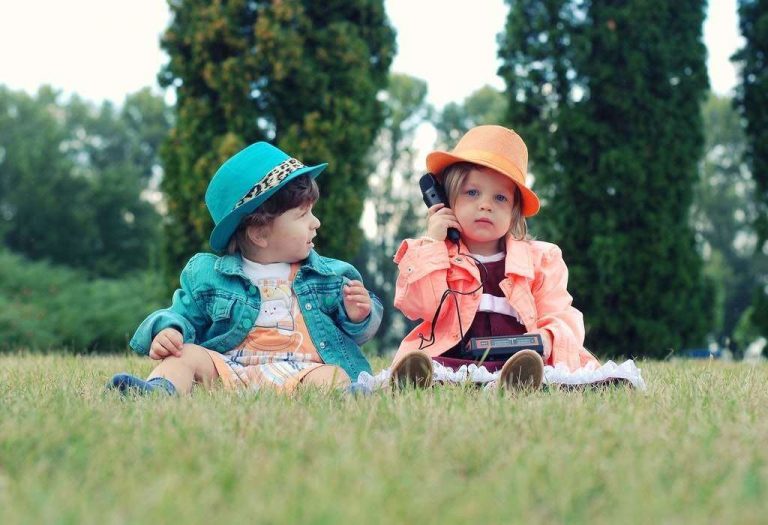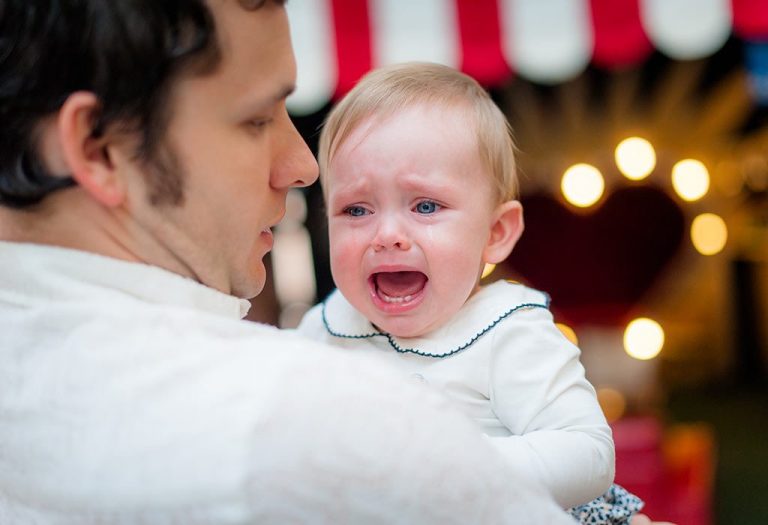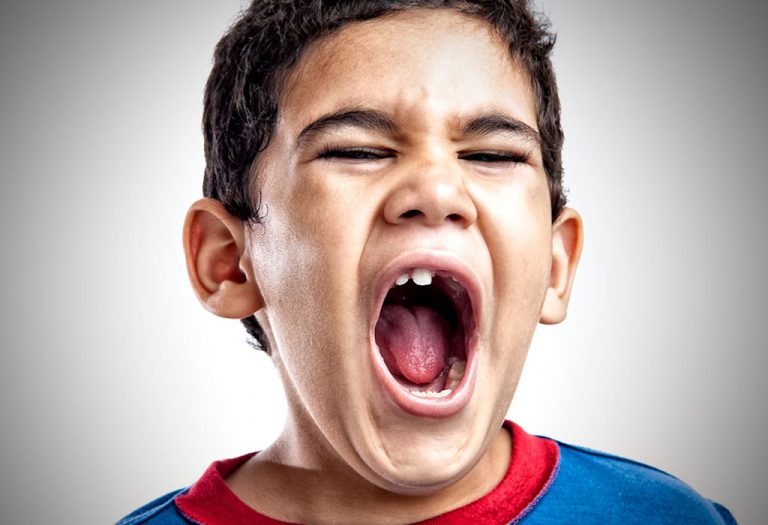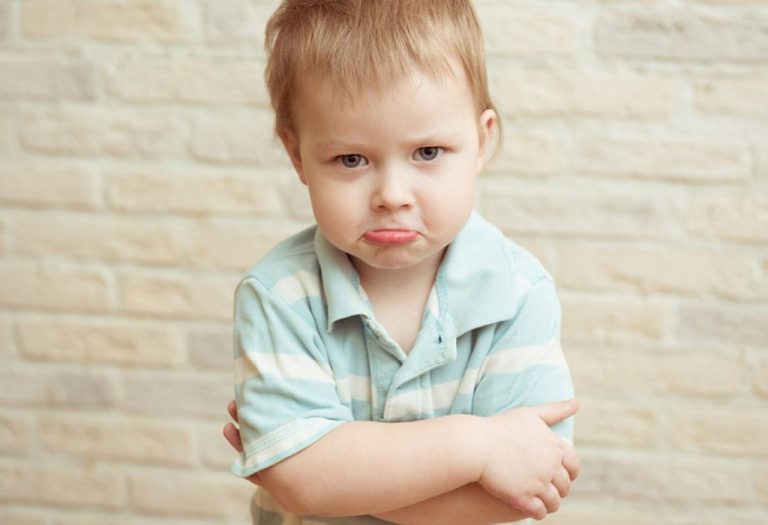Selective Hearing Disorder in Young Children
Two years is the age when children involuntarily learn to turn down parents’ calls and instructions and prioritise tasks according to their choice. This is basically a facet of selective listening. But does that mean selective hearing in toddlers is worrisome? No, it’s a routine growth aspect. You just need to employ a few tricks to make yourself heard!
Have you noticed lately that your 25-month-old toddler isn’t heeding instructions? Don’t panic; this signals the advancement of a new and very human trait– selective hearing. Your child is not alone in this either. Many toddlers become selective listeners at this age. Instead of scolding her for her ‘defiance’ and stubborn refusal to answer your calls, learn how to make your baby pay attention. But first, let’s understand the selective hearing meaning.
What Is Selective Listening?
Selective listening is a sensory technique of identifying and paying attention to important or worthy auditory information and filtering out the rest of the information, including background noise (1). Basically filtering out the necessary acoustic information from the irrelevant (2).
Selective hearing is beneficial in helping us survive by focusing on the important information and not wasting time on the rest in virtually any environment, including a classroom, cafe, bar, club, sport event, etc., ultimately saving the day and energy. This is often coined as the “cocktail party effect. (3)” Let us make it more clear with the help of an example. Suppose you are at a party with loud music around you. Yet you are able to converse with your friend and exchange notes. Similarly, you are in a park with several kids and parents running around here and there. Yet you are able to catch your kiddo’s cry amidst the hullabaloo and run to them in an instant. In both cases, you have focused on the important auditory information and zoned out of the rest.
Can Toddlers Have Selective Hearing, and Why?
Selective listening occurs when a toddler is selective about what he chooses to hear or listen to. Child psychology experts say that 25-month-old toddlers can’t be expected to be good listeners because their attention span is limited. They cannot focus on an activity for more than 3 to 5 minutes. So, it’s perfectly alright if you’re compelled to repeat instructions, physically guide, and even use gestural and verbal clues to make yourself heard.
It is also found that when the background noise is predictable and repetitive, children are able to detect the auditory signal. However, when it is unpredictable and chaotic, children’s hearing deteriorates, and they are not able to filter out auditory information (4). In cases of chaotic and randomly changing background noise, children, usually of 4-5 years, require a fivefold increase in attention compared to adults, which could make them miss crucial information (5).
Reasons That Prompt Toddlers to Listen Selectively
Knowing what selective listening is is just part of the solution. The next step is determining why your toddler chooses to listen only to certain things you say. Here are some of the possible reasons for your child’s selective hearing:
- Do you, at times, get too informative when communicating with your 25-month-old? Check this for getting your toddler to listen. Kids can’t grasp an overload of information at once.
- At this age, your toddler can’t follow anything more than concise, crisp instructions. Complex directions will only confuse her and cause her to tune out what you say. If need be, include physical gestures when communicating something to her.
- The hands and eyes are pivotal in establishing effective and meaningful interactions. Using subtle touches to earn her attention and establishing eye contact when needed are a few things you can do to get her to pay attention.
How to Get Your Toddler to Listen
- Kids quickly learn anything fun. The next time you want your child to be at the dining table, why not organise a race there? She’ll be more inclined to get there!
- By 25 months, your toddler should be listening to and identifying different sounds, such as tweeting birds and flowing water. A listening exercise for toddlers you can try is to take her to a park and prompt her to listen to the birds chirping, a dog barking, or the wind whistling through the trees.
- Proper communication can also happen through whispering. Use whispers as often as possible or whenever you feel your kid isn’t paying attention. You’ll soon notice that she’ll stop what she’s doing and appear more attentive to your whispering.
FAQs
1. Does my child have selective listening skills?
Selective hearing becomes a menace when it is used to disobey others. Otherwise, the role of selective hearing is quite clear- filtering out necessary information from a bunch of auditory information. While some kids are interested in playing video games, others could be focused on a particular sport or learning skill. This preoccupation of them towards the skill or interest of their liking may push them to hear selectively, but it only becomes a problem when they are unable to focus on following directions or rules or exhibit good manners.
If their selective hearing is due to early hearing loss or tinnitus (ringing in the ears), you should get them checked with a paediatrician without any delay (6). Selective hearing could also happen due to attention deficit disorder (ADHD) or auditory processing disorder, which could hamper their multitasking skills (7) (8). Getting a consultation from a certified paediatrician is necessary to rule out any health concern that may be responsible for your child’s selective hearing disorder.
2. What are some health concerns that could hamper their hearing and processing?
Wax deposits in the ear, excessive use of headphones, ringing of the ears (tinnitus), and attention deficit hyperactivity disorder (ADHD) are some health conditions that could affect your child’s hearing and processing of information. Speech–sound-selective auditory impairment in autistic children can also be a concern. In this case, as reported by a study, high-functioning verbal autistic children can process basic sounds, simple and complex tones and vowels on a normal basis but have trouble paying attention when there is a change in vowel sounds, which could lead to speech–sound-selective auditory impairment (9).
3. How does tinnitus affect hearing?
Tinnitus is simply described as ringing in the ears, which hinders them from hearing properly (10). It could happen at irregular intervals, which means that the ringing may occur for some time, while at other times, it may not. Two-three-year-old toddlers may not be able to perfectly describe the issue if they face tinnitus, but slightly older children around 3.5-4 years old can give some clue, like something ringing in their ear, such as a beeping or ringing sound.
Choosing what to listen to is not due to any selective hearing disorder. However, if you do feel that your child could have a problem with her hearing, it is advised to consult a doctor. In the meantime, apply the suggestions above and get your toddler to learn to pay attention better.
If you’ve discovered interesting exercises to deal with selective hearing in 25-month-old tots, share them with us!
References/Resources:
1. Nida. E. A; Selective Listening; Language Learning, A Journal of Research in Language Studies; https://onlinelibrary.wiley.com/doi/abs/10.1111/j.1467-1770.1952.tb01190.x; December 1952
2. Kurmanavičiūtė. D, et al.; Target of selective auditory attention can be robustly followed with MEG; Scientific Reports; https://www.nature.com/articles/s41598-023-37959-4; July 2023
3. Bardi. J; How Selective Hearing Works In the Brain; UCSF; https://www.ucsf.edu/news/2012/04/98585/how-selective-hearing-works-brain; April 2012
4. Oh. E. L, et al.; Children’s detection of pure-tone signals with random multitone markers; J Acoust Soc Am.; PubMed Central; https://www.ncbi.nlm.nih.gov/pmc/articles/PMC2858975/; June 2001
5. Jones. P. R, Moore. D. R, Amitay. S; Development of auditory selective attention: why children struggle to hear in noisy environments; Dev Psychol.; PubMed Central; https://www.ncbi.nlm.nih.gov/pmc/articles/PMC4337492/; March 2015
6. Shinn-Cunningham. B. G, Best. V; Selective attention in normal and impaired hearing; Trends Amplif.; PubMed Central; https://www.ncbi.nlm.nih.gov/pmc/articles/PMC2700845/; December 2008
7. Gomes. H, et al.; Auditory selective attention and processing in children with attention-deficit/hyperactivity disorder; Clin Neurophysiol.; PubMed Central; https://www.ncbi.nlm.nih.gov/pmc/articles/PMC3232335/; February 2012
8. Auditory Processing Disorder; Nemours KidsHealth; https://kidshealth.org/en/parents/central-auditory.html
9. Čeponienė. R, et al.; Speech–sound-selective auditory impairment in children with autism: They can perceive but do not attend; Biological Sciences; PNAS; https://www.pnas.org/doi/full/10.1073/pnas.0835631100; April 2003
10. Tinnitus; NIDCD; https://www.nidcd.nih.gov/health/tinnitus
Also Read:
Helping Your Toddler Cope with Guilt
Tips to Deal with Destructive Behaviour in Toddlers
Why Do Toddler Ignore You and What to Do About It?
Common Toddler Behaviour Problems and Their Solutions
Was This Article Helpful?
Parenting is a huge responsibility, for you as a caregiver, but also for us as a parenting content platform. We understand that and take our responsibility of creating credible content seriously. FirstCry Parenting articles are written and published only after extensive research using factually sound references to deliver quality content that is accurate, validated by experts, and completely reliable. To understand how we go about creating content that is credible, read our editorial policy here.













.svg)
















